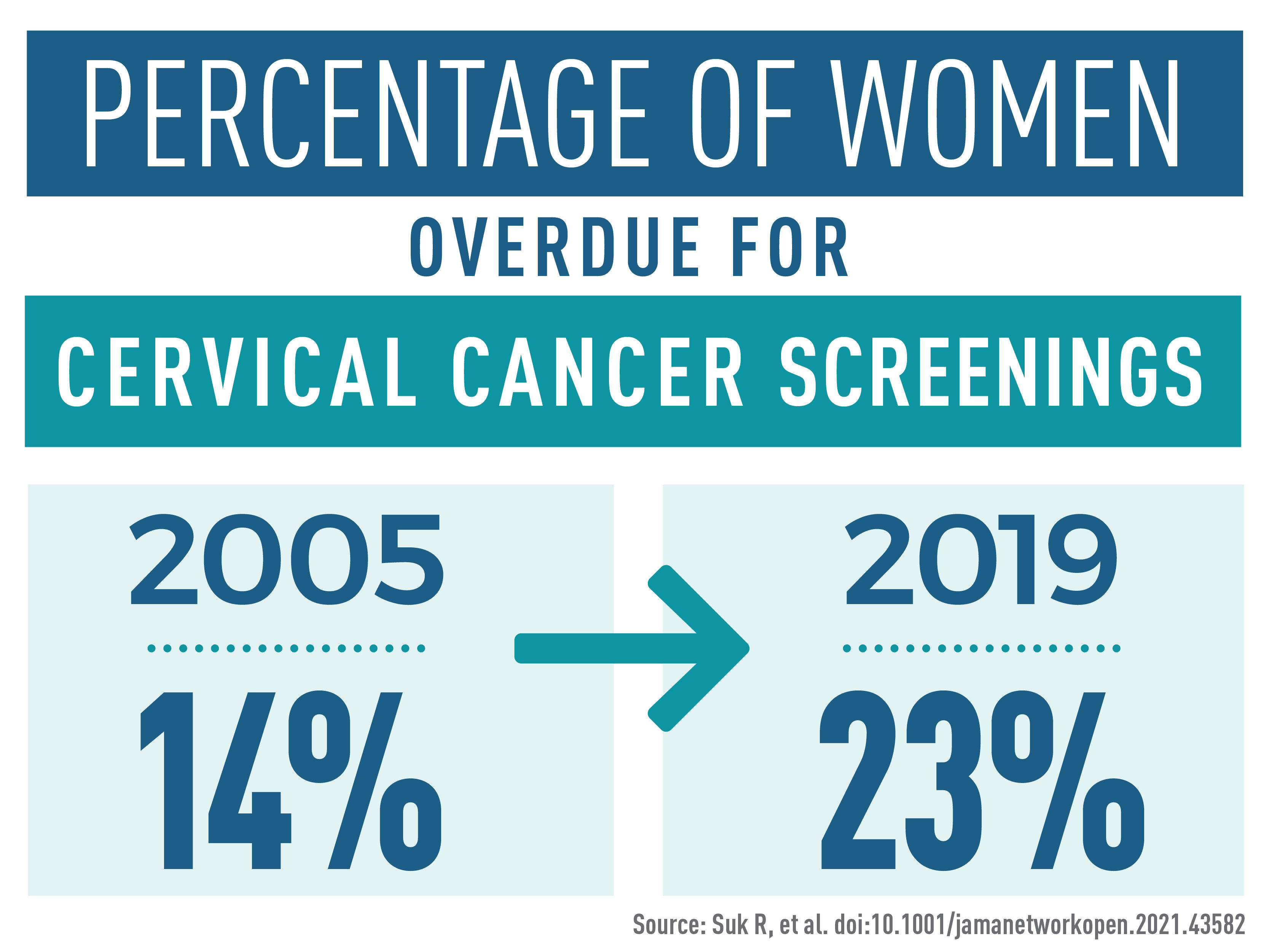Health Capsule
Are You Overdue for a Cervical Cancer Screening?

Cervical cancer starts in the cervix. The cervix is at the lower end of the uterus, where a fetus grows. Screening for cervical cancer has dramatically reduced new cases and deaths. But many women are overdue for getting one.
Cervical cancer usually develops slowly over time. At first, it may not cause signs or symptoms. But it can be detected early with regular screenings. Screenings require a visit to your health care provider. They will collect cells from your cervix with a brush and send them to a lab. The lab then examines the sample for the presence of HPV and/or abnormal cells. Nearly all cases of cervical cancer are caused by HPV infection, which is spread through sexual activity.
Experts recently updated the guidelines for how often women should be screened for HPV and cervical cancer. That may have caused confusion about when to get screened. In a recent survey, more than half of women said they hadn’t had a screening because they didn’t know they needed it.
Talk with your health care provider about how often you should be screened. Even if you’ve had the HPV vaccine, you still should be screened for cervical cancer. The current vaccines greatly reduce your risk for getting cervical cancer. But they do not protect against all cervical cancer. Learn more about cervical cancer.
NIH Office of Communications and Public Liaison
Health and Science Publications Branch
Building 31, Room 5B52
Bethesda, MD 20892-2094
Contact Us:
nihnewsinhealth@od.nih.gov
Phone: 301-451-8224
Share Our Materials: Reprint our articles and illustrations in your own publication. Our material is not copyrighted. Please acknowledge NIH News in Health as the source and send us a copy.
For more consumer health news and information, visit health.nih.gov.
For wellness toolkits, visit www.nih.gov/wellnesstoolkits.




